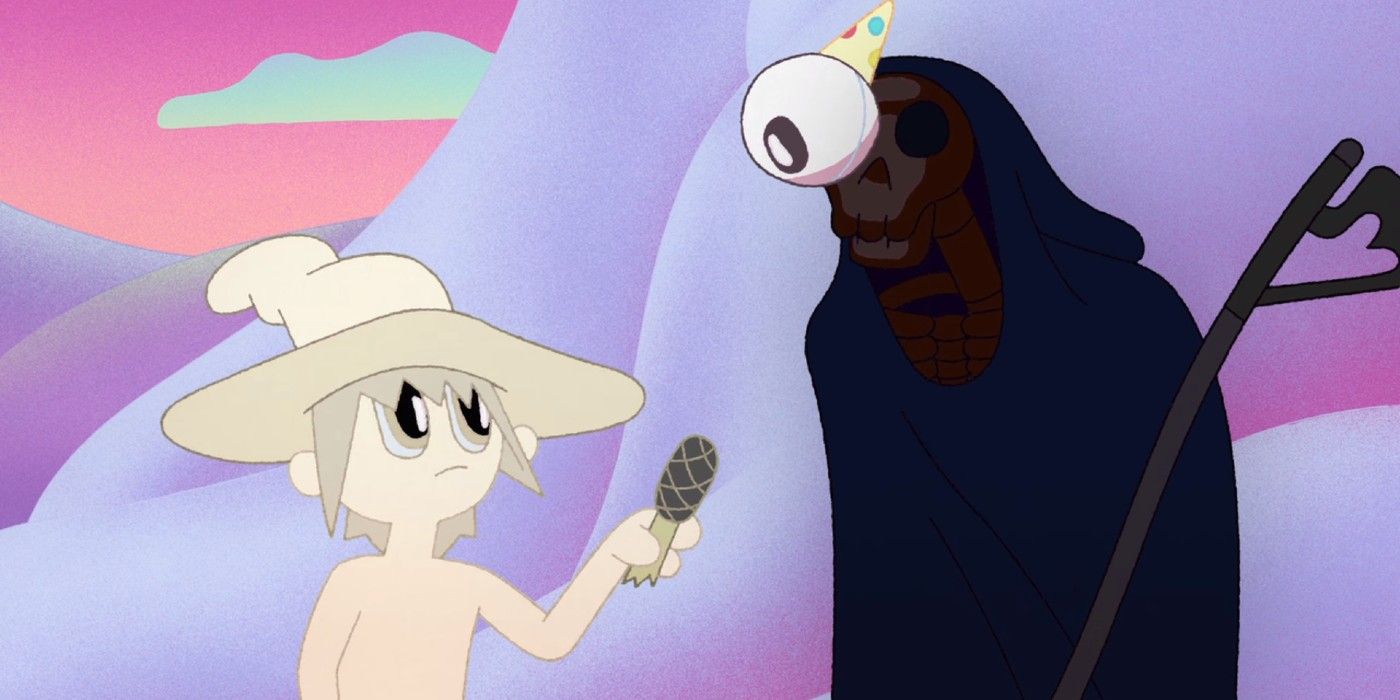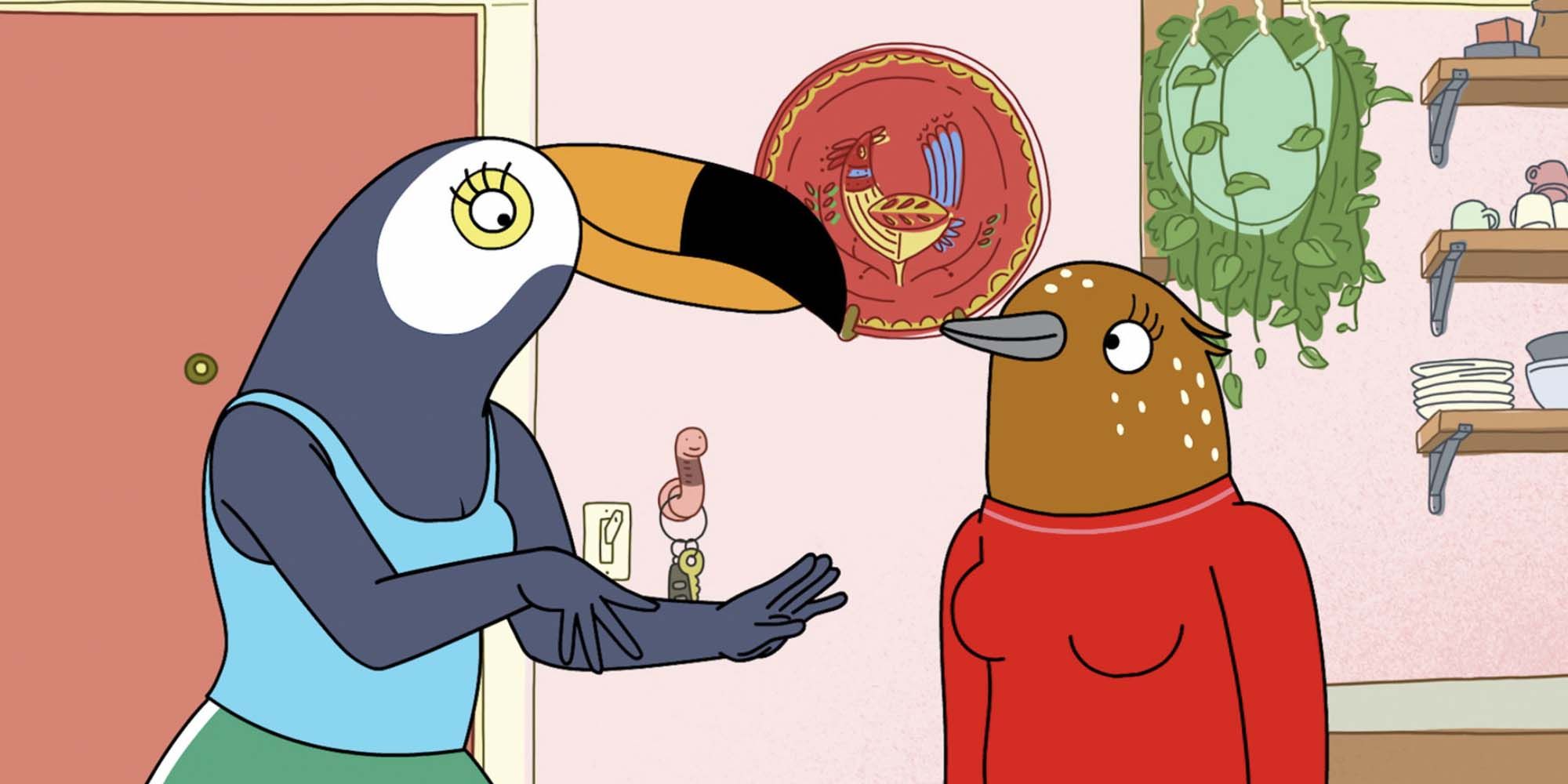
5 Underrated Netflix Animated TV Shows That Ended Too Soon

Netflix's premature cancellation of these animated TV shows has left fans disappointed From the psychedelic journey of The Midnight Gospel to the hilarious adventures of Tuca & Bertie, these captivating series deserved more seasons to explore their unique storytelling Q-Force, Inside Job, and Dead End: Paranormal Park also fell victim to Netflix's untimely decisions, robbing viewers of further enjoyment
Article Overview
The cancellation of animated TV shows by Netflix, including The Midnight Gospel and Q-Force, serves as a reminder that even highly popular shows can meet an untimely end, leaving significant narratives and representation unfinished.
The depiction of adult friendships, anxiety, and universal challenges in series like Tuca & Bertie strikes a chord with numerous viewers. The sudden cancellation of this show suggests that Netflix may have prematurely disregarded a valuable message.
Through its examination of conspiracy theories, Inside Job offers a captivating exploration of human thinking and conflict. However, the cancellation of a second season means that the lingering plot points and the opportunity for personal development in a cynical setting will remain unexplored.
Netflix has a tendency to cancel animated TV shows more frequently, even before they should be. After losing 200,000 subscribers in 2022, Netflix became more conservative with its spending, resulting in loyal fans only getting one or two seasons before a show gets canceled. This isn't limited to animated shows; even live-action young adult series like The Bastard Son & The Devil Himself, with positive reviews from both audiences and critics, only got one season. The vast library of content on Netflix makes it challenging for new shows to compete and achieve high ratings, leading to unfortunate cancelations.
Even if a show initially performs well, like the adaptation of the supernatural thriller book series Lockwood & Co., which gained 79.91 million hours in the global top 10s within its first three weeks, it can still face cancellation. In the case of animated shows, those with low completion rates or a high cost-to-produce/viewership ratio are often axed after just one or two seasons, as seen with Hoops. While this may seem justified, it results in incomplete and important stories about relatable topics like mental health and queer representation. This demonstrates that cartoons are not solely for children but can resonate with a wider audience beyond a niche market.
5. The Midnight Gospel
1 Season (2020)
The Midnight Gospel stands out from long-running Netflix animated TV shows like BoJack Horseman due to its unique structure and core premise. Created by Adventure Time creator Pendleton Ward and comedian Duncan Trussell, it incorporates Trussell's real-life podcast interviews with additional voice work and otherworldly visuals, all within a storytelling framework. Within the sci-fi dimension known as Chromatic Ribbon, Clancy Gilroy (voiced by Trussell) traverses different worlds on the brink of disaster, conducting interviews with the inhabitants for his space-cast.
Although the show did not end on a suspenseful note, the combination of chaotic visuals and introspective dialogue in The Midnight Gospel serves to emphasize how conversations and interactions can completely upend someone's world and provide enlightening moments. This emphasis on open discourse promotes the idea of embracing differing perspectives in a world that is often plagued by devastation and conflict. Trussell expresses his desire for another season in a tweet, stating, "In my mind, there's one more season." Furthermore, he metaphorically suggests that streamers have the power to make this happen, as shown below:
4. Q-Force
1 Season (2021)
Q-Force, an abbreviation for Queer Force, revolves around an underappreciated espionage team led by Steve Mayweather, a gay secret agent portrayed by Sean Hayes. The team is composed of Stat (Patti Harrison), Twink (Matt Rogers), and Deb (Wanda Sykes). Throughout the season, Steve endeavors to validate both his and his teammates' capabilities while contending with his rival, Rick Buck (David Harbour), who becomes the intermediary between Q-Force and the American Intelligence Agency (AIA). In their pursuit, the force infiltrates Mira (Stephanie Beatriz) and her mission to employ Greyscale technology for manipulating individuals' minds.
While criticized for relying on tired queer stereotypes, the underlying concept of representation holds crucial significance. If the show had carried on, other exceptional Q-Force characters like Stat could have received more screen time, thereby allowing for more nuanced and authentic portrayals of queer identities. Despite occasionally employing dated humor, the show's endearing characters and the opportunity to explore the spy sub-genre in a lighthearted yet grounded manner suggest that deeper exploration of queer relationships and character development could have been achieved. To illustrate, in the final episode, Steve openly confesses to Benji that he is a spy, presenting their romance with new challenges and dynamics to explore.
3. Tuca & Bertie
1 Season (2019)
The animated show Tuca & Bertie features Tiffany Haddish and Ali Wong as the voices of the main characters. It revolves around the lives of two bird best friends, Tuca and Bertie, who share an apartment complex and navigate the challenges of adulthood. Tuca is a lively and impulsive toucan, while Bertie is a more reserved and anxious song thrush. Together, they experience various highs and lows, demonstrating how to cope with the absurdities of life. The show's animation, like the snake subways, adds to its whimsical and surreal tone. It has been renewed for two more seasons on Adult Swim, with season 2 premiering in 2021 and season 3 in 2022.
While this is the only list entry that was picked up by a different network, the reaction to its sudden cancellation demonstrates how the depiction of adult friendships and the anxiety surrounding adulthood resonates with numerous viewers. Fans took to Twitter, using hashtags #RenewTucaAndBertie and #SaveTucaAndBertie. Although the show was also terminated by Adult Swim, it offers fans a more conclusive ending for the characters and their personal growth, such as Bertie in her career and her relationship with Speckle (Steven Yeun). Ultimately, its lighthearted approach to addressing universal struggles, including addiction, pain, workplace conflicts, and women's health, positions the show as a valuable lesson Netflix prematurely let go of.
2. Inside Job
1 Season (2021-2022)
Inside Job revolves around Reagan Ridley, a brilliant robotics engineer employed by Cognito Inc., a covert government agency. Despite her limited social skills, Reagan is driven by her desire to enhance society as a whole and advance her career. The show's creator, Shion Takeuchi, was inspired by the idea of a shadow government during her college years, which made her realize how people become engrossed in their own lives, merely fulfilling their job duties (via Polygon). By incorporating conspiracy theories, the show provides an engaging avenue to explore human thoughts and conflicts, while still allowing viewers to relate.
Takeuchi, a writer on Gravity Falls, and Alex Hirsh, the show creator, are both involved in Inside Job, with Hirsh serving as an executive producer. This connection explains the similarities in art style and storytelling approach.
Although the focus on conspiracy theories may not resonate with everyone, Takeuchi's fascination with the contradicting aspects of human nature, such as feeling helpless in the face of global turmoil, brings Reagan's character to the forefront in terms of relatability. It highlights the idea that goals and personality may not always align, but perseverance and good intentions still hold significance.
The show introduced an unresolved plot point involving The Shadow Board's secret plan, known as "Project X37." However, due to Netflix pulling out of their initial plan for a second season of Inside Job, this storyline remains unresolved. It is unfortunate as further exploration of personal growth in a cynical environment could have been achieved by delving into the details of this project in subsequent seasons.
1. Dead End: Paranormal Park
2 Seasons (2022)
Paranormal Park faced poor promotion and was ultimately canceled after two seasons, leaving viewers with an unsatisfying cliffhanger. In the conclusion, Norma seeks the assistance of demons Zagan and Temeluchus to seek revenge on the angels, only to discover that their mother is trapped in a sarcophagus. Show creator Hamish Steele sadly announced the end of Dead End in a tweet, but promised fans that the story would find closure in the third book of the DeadEndia series, upon which the show is based.
Despite its lack of a fulfilling conclusion, the show offers important representation for cultural, racial, and LGBTQIA+ communities. The characters of Barney, a gay transgender male, and Norma, an autistic Pakistani-American bisexual girl, give voice to underrepresented groups without perpetuating stereotypes. Additionally, Paranormal Park features a wide range of characters from different cultures and religions, such as Norma's Muslim best friend, Badyah. By highlighting relatable human struggles and providing much-needed diverse representation, the cancellation of certain animated TV shows on Netflix suggests that there is untapped potential in this medium.
Sources: What's On Netflix, Twitter/duncantrussell, Polygon, Twitter/hamishsteele
Editor's P/S
As an enthusiastic fan, I feel deeply disappointed by Netflix's premature cancellation of several captivating animated TV shows. The unique storytelling and compelling narratives of shows like The Midnight Gospel and Tuca & Bertie left me craving more seasons to explore their full potential. The cancellation of Inside Job and Dead End: Paranormal Park also robbed viewers of further enjoyment, leaving lingering plot points unresolved.
The premature cancellations also highlight a concerning trend at Netflix. The streaming giant's focus on subscriber numbers and cost-cutting measures have resulted in the cancellation of shows with loyal fan bases and critical acclaim. This short-sighted approach stifles creativity and prevents the development of diverse and meaningful stories. As a fan, I urge Netflix to reconsider its cancellation decisions and renew these beloved animated TV shows, allowing them to reach their full potential and provide viewers with the satisfying conclusions they deserve.









